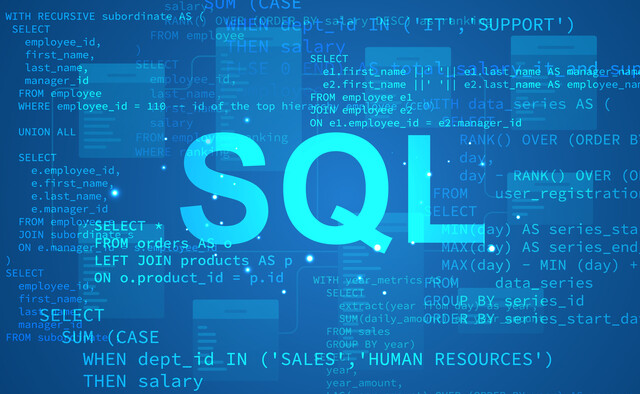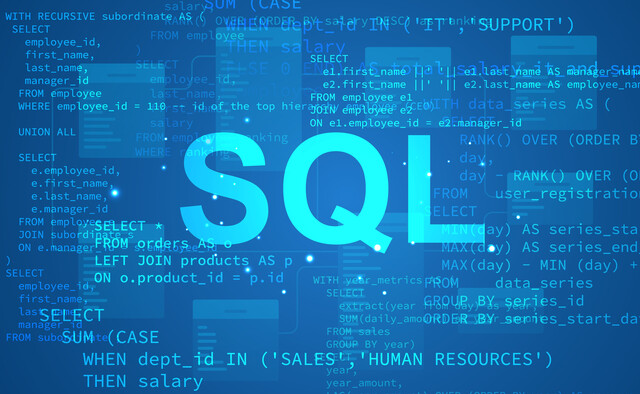Online Class: Introduction to Logic

no certificate
with CEU Certificate*
-
15Lessons
-
25Exams &
Assignments -
1,993Students
have taken this course -
7Hours
average time -
0.7CEUs
Course Description
Embark on the Enigmatic Odyssey of Logic
Long before mankind gazed at the stars through telescopes, endeavoring to unravel the mysteries of the cosmos, or embarked on perilous journeys to uncover Earth's hidden secrets, there was an academic pursuit that captivated inquisitive minds: the profound examination of logic. In an era where deities were believed to reign supreme from the lofty peaks, this ancient discipline sought to decipher the code of rationality that underpins our very existence.
Today, in our modern lexicon, 'logic' is often perceived merely as a synonym for common sense or rationality. However, the realm of logic is much richer, far-reaching, and profound. It is a meticulously constructed edifice of rules that delineates what is deemed rational and what is not.
This course promises a riveting journey into the heart of logical studies. We'll traverse the landscapes of both formal and informal logic, discern between the nuances of inductive and deductive reasoning, and explore advanced schools of logical thought. As we delve into formal logic's realm—stripping down statements to their purest, abstract essence—you'll be introduced to its intricate systems and languages. However, fear not! Our voyage will predominantly anchor in plain English, ensuring a clear and engaging learning experience. Along the way, expect intriguing detours into paradoxes, fallacies, historical insights, and the myriad applications of logic.
One might wonder, why embark on such a journey? The motive is twofold. Firstly, to demystify the classical essence of 'logic', disentangling it from its contemporary, colloquial use. And secondly, to instill a deeper appreciation and understanding of logic that transcends textbook definitions, empowering you to harness its principles in everyday life.
A Prelude to Our Journey: The Essence of Logic
At its core, logic is the art and science of constructing and dissecting arguments pertaining to truth and falsehood. It is governed by a consistent set of rules that, when adeptly applied, ascertain the validity of an argument. For logic to weave its magic, it demands binary clarity: the statement in question must be provable as true or false.
Language: The Heartbeat of Logic
At the intersection of thought and expression lies language, serving as the bedrock upon which logical edifices are built. Whether it be the eloquent arguments of ancient Greeks or the modern-day debates in English, the principles of logic remain universal, transcending linguistic boundaries. However, with the ever-evolving nature of language, riddled with dialectical variations and semantic shifts, logic's timeless pursuit has been to find a system unshackled by linguistic constraints.
Join us on this enlightening expedition, as we voyage through the mesmerizing corridors of logic, a discipline that has shaped civilizations and continues to illuminate our path in an increasingly complex world.
- Completely Online
- Self-Paced
- Printable Lessons
- Full HD Video

- 6 Months to Complete
- 24/7 Availability
- Start Anytime
- PC & Mac Compatible
- Android & iOS Friendly
- Accredited CEUs

Course Lessons
Lesson 1. The Essence and Evolution of Logic
Logic, a system of deriving truth, differentiates between reasoned argumentation and common expression, leveraging properties like consistency and soundness. Originating in early philosophical thought, it has seen refinement from the Greeks to 20th-century formal logic systems, integrating symbols and equations.Lesson 2. The Birth and Growth of Logical Thought
In ancient civilizations, from Master Mo and Nagarjuna to Parmenides and Aristotle, foundational logic intertwined with cultural and philosophical beliefs laid the groundwork for systematic reasoning. This blend bridged emotional inferences and abstract thought, setting a precedent for the dialectics and formal structures that would dominate medieval European and Islamic intellectual landscapes.Lesson 3. Exploring the Mechanics of an Argument
Breaking down an argument involves examining claims, counterclaims, reasons, evidence, warrants, and responses—components crucial for dissecting and understanding the logic behind stances taken. Argumentation theory emphasizes structured analysis to mitigate errors and fallacies that could otherwise cloud reasoning in critical contexts.Lesson 4. Formal vs. Informal Logic: Exploring the Frameworks
The lesson covers two types of logic: formal, which uses structured forms, and informal, which evaluates arguments in their real-life context. Deductive reasoning is paired with formal logic for specific conclusions, while inductive reasoning accompanies informal logic for generalized inferences.Lesson 5. The Anatomy of Syllogisms: Breaking Down Logical Structures
While conversational syllogisms are rare, this lesson spotlights their logical beauty, dissecting components like premises and propositions to underline the value of structured argumentation. By distinguishing terms and proposition types, students grasp the systematic process of deriving valid conclusions.Lesson 6. Understanding Logical Arguments
Words like 'all,' 'some,' and 'not' encapsulate critical logical operations within propositions, with each combination clarifying a perspective's truth. Logical forms, dating back to the Stoics and Aristotle, serve as the blueprints for differentiating valid argument patterns from those dependent on external content.Lesson 7. Exploring the Depths of Natural Deduction: An Insightful Journey into Logical Reasoning
Natural deduction is a method introduced by Gentzen to structure formal logic as naturally as possible, contrasting with reliance on unproven axioms used by earlier logicians. It employs self-evident rules of inference to connect hypotheses and conclusions, making abstract argument manipulation possible.Lesson 8. Modal Logic Explored
Modal logic offers a sophisticated way to assess truth beyond classical logic by incorporating concepts like 'necessary' and 'possible,' making it robust enough to handle complex logical expressions. This advancement was pioneered by logicians such as C.I. Lewis and Saul Kripke, the latter of whom developed possible worlds semantics crucial for understanding modern modal logic.Lesson 9. Probability Meets Logic
Bayesian probability offers a method for computing conditional probabilities by updating prior beliefs with new evidence. This approach revolutionizes our ability to calculate probabilities in dynamic environments by focusing on the likelihood of events given prior conditions.Lesson 10. Unraveling the Complexity of Informal Logic
Inductive reasoning is a form of informal logic that derives generalized conclusions from specific evidence, and it comprises methods such as generalization, statistical syllogism, and Bayesian inference. Though it allows for error, understanding these techniques, including Mill's Methods, enhances our ability to make educated guesses in different scenarios.Lesson 11. Formal Fallacies: A Deep Dive
The fallacy fallacy demonstrates the danger of dismissing an argument's conclusion solely based on poor presentation, underscoring that argument form and content both hold significance. Learning to discern true statements from flawed reasoning structures is an essential skill for effective critical analysis.Lesson 12. The Differentiation Between Formal and Informal Fallacies
Begging the question involves circular reasoning where the conclusion is inherent in the premise, rendering the argument useless for truth verification. The gambler’s fallacy reflects a misunderstanding of probability, falsely believing past events affect future outcomes.Lesson 13. Paradoxes and Their Role in Testing Logical Completeness
Numerical paradoxes delve into the abstract nature of infinity, posing logic-defying questions about its existence in mathematics, as seen with Hilbert's Hotel showcasing infinite capacity and vacancies simultaneously. These paradoxes bridge conceptual gaps between finite and infinite, testing the borders of logical comprehension.Lesson 14. Reconciling Observation and Reason in Understanding Reality
Although logic is fundamental for rational thought, its reliability is questioned due to human irrationality and paradoxes that challenge pure logical interpretation. The contrast between logic and human observation suggests that understanding the universe may not solely depend on logical reasoning.Lesson 15. From Theory to Practice: Logic's Influence
Fuzzy logic accommodates questions lacking binary truth values by using values between 0 and 1, benefiting technologies from vehicle systems to AI functions. Temporal logic allows computers to handle processes over time, ensuring functionality by managing when processes are accessible.
Learning Outcomes
- Define logic and explain its historical development, highlighting key figures like Aristotle and their contributions.
- Identify and analyze the core properties of logical systems, such as consistency, soundness, validity, and completeness, with illustrative examples.
- Describe the evolution of logic from ancient to modern times, highlighting the influence of different cultures, including Chinese, Indian, Greek, Islamic, and Western traditions, and evaluate their impact on contemporary logical theories and applications
- Identify the key contributions of Aristotle to the development of formal logic, such as the Law of Excluded Middle and the Law of Non-Contradiction, and demonstrate their significance in modern logic systems
- Define an argument by identifying its components, including premises and conclusions, and using examples after engaging with the lesson material.
- Differentiate types of errors in argumentation theory, specifically logical fallacies and their impact on argument validity, by analyzing provided examples.
- Define the differences between formal and informal logic by identifying their respective focus on argument structure and content.
- Demonstrate the use of inductive reasoning by analyzing a specific scenario to form a generalized conclusion.
- Demonstrate the ability to construct a logically valid syllogism based on a given conclusion by correctly organizing premises and terms.
- Recognize the structure of a syllogism by identifying the major, minor, and middle terms within a given argument.
- Demonstrate understanding of logical forms by constructing syllogisms that verify the truth of an argument's conclusion based on given premises.
- Recognize logical forms by applying abstract structures to evaluate the validity of arguments.
- Define the concept of natural deduction and demonstrate its role in forming valid arguments using clear examples.
- Demonstrate mastery of lesson content at levels of 70% or higher.
Additional Course Information

- Document Your Lifelong Learning Achievements
- Earn an Official Certificate Documenting Course Hours and CEUs
- Verify Your Certificate with a Unique Serial Number Online
- View and Share Your Certificate Online or Download/Print as PDF
- Display Your Certificate on Your Resume and Promote Your Achievements Using Social Media

Choose Your Subscription Plan
No Certificate / No CEUs
This course only
| Includes certificate | X |
| Includes CEUs | X |
| Self-paced |

|
| Instructor support |

|
| Time to complete | 6 months |
| No. of courses | 1 course |
Certificate & CEUs
This course only
| Includes certificate |

|
| Includes CEUs |

|
| Self-paced |

|
| Instructor support |

|
| Time to complete | 6 months |
| No. of courses | 1 course |
Certificates & CEUs
Includes all 600+ courses
| Includes certificate |

|
| Includes CEUs |

|
| Self-paced |

|
| Instructor support |

|
| Time to complete | 12 Months |
| No. of courses | 600+ |
Certificates & CEUs
Includes all 600+ courses
| Includes certificate |

|
| Includes CEUs |

|
| Self-paced |

|
| Instructor support |

|
| Time to complete | 24 Months |
| No. of courses | 600+ |
Student Testimonials
- "Instructor April Cordry Moore is a wonderful instructor. She is very patient and willing to provide feedback with explanation about mistakes I have made, so that I can improve my thinking. She was very patient when I tried to study Statistics. Although i did not do as well as I liked, it was wholly my shortcoming of earlier attempts at math." -- Judith J.
- "It was a great course, the hardest I've taken with universalclass but that's normal given the subject. I've learned so much during the course of this class thanks to the way it was explained by the teacher in the course materials. I wouldn't change a thing about the course, it's perfect the way it is." -- Steven L.
- "Thank you. Although I have struggled throughout this course,I have learned a lot about how the progression of modern mathematics is influenced by logic. Also other areas logic is greatly applied to in the Scientific Method. Learning more about different paradoxes was also interesting." -- Dahlila V.
- "I didn't know that there were so many different theories and it's hard to believe I actually thought this was just a math course. It's so much more!" -- Chelsea J.
- "Great Introduction to logic with plenty of resources to expand one's learning opportunities." -- Sean B.
- "I thought this course was very interesting and I learned a lot from it." -- Joseph D.
- "The course was great." -- Peter G.
Related Courses
-
 25 hours
2.5 CEUs
Human Resources Productivity Course Bundle
+ More Info
25 hours
2.5 CEUs
Human Resources Productivity Course Bundle
+ More Info
-
 95 hours
9.5 CEUs
Math All-In-One (Arithmetic, Algebra, and Geometry Review)
+ More Info
95 hours
9.5 CEUs
Math All-In-One (Arithmetic, Algebra, and Geometry Review)
+ More Info
-
 2 hours
0.2 CEUs
Purchasing and Vendor Management 101
+ More Info
2 hours
0.2 CEUs
Purchasing and Vendor Management 101
+ More Info
-
 8 hours
0.8 CEUs
MySQL
+ More Info
8 hours
0.8 CEUs
MySQL
+ More Info
-
 5 hours
0.5 CEUs
Operations Management 101
+ More Info
5 hours
0.5 CEUs
Operations Management 101
+ More Info
-
 7 hours
0.7 CEUs
Employment Law Fundamentals
+ More Info
7 hours
0.7 CEUs
Employment Law Fundamentals
+ More Info
-
 4 hours
0.4 CEUs
Resolving Workplace Conflict
+ More Info
4 hours
0.4 CEUs
Resolving Workplace Conflict
+ More Info
-
 8 hours
0.8 CEUs
Human Resources Management
+ More Info
8 hours
0.8 CEUs
Human Resources Management
+ More Info
-
 17 hours
1.7 CEUs
Introduction to SQL
+ More Info
17 hours
1.7 CEUs
Introduction to SQL
+ More Info
-
 8 hours
0.8 CEUs
Learn HTML - Create Webpages Using HTML5
+ More Info
8 hours
0.8 CEUs
Learn HTML - Create Webpages Using HTML5
+ More Info
-
 15 hours
1.5 CEUs
Traditional Scrapbooking
+ More Info
15 hours
1.5 CEUs
Traditional Scrapbooking
+ More Info
-
 16 hours
1.6 CEUs
Advertising Copywriter
+ More Info
16 hours
1.6 CEUs
Advertising Copywriter
+ More Info
-
 6 hours
0.6 CEUs
General Receptionist
+ More Info
6 hours
0.6 CEUs
General Receptionist
+ More Info
-
 6 hours
0.6 CEUs
ESL Basic Grammar
+ More Info
6 hours
0.6 CEUs
ESL Basic Grammar
+ More Info
-
 3 hours
0.3 CEUs
Job Performance Appraisals - A How To Guide
+ More Info
3 hours
0.3 CEUs
Job Performance Appraisals - A How To Guide
+ More Info
-
 5 hours
0.5 CEUs
Critical Thinking Skills
+ More Info
5 hours
0.5 CEUs
Critical Thinking Skills
+ More Info
-
 10 hours
1.0 CEUs
Managing Workplace Teams
+ More Info
10 hours
1.0 CEUs
Managing Workplace Teams
+ More Info
-
 6 hours
0.6 CEUs
Delegation Skills
+ More Info
6 hours
0.6 CEUs
Delegation Skills
+ More Info
-
 8 hours
0.8 CEUs
Crisis Management
+ More Info
8 hours
0.8 CEUs
Crisis Management
+ More Info
-
 7 hours
0.7 CEUs
Accounts Payable Training
+ More Info
7 hours
0.7 CEUs
Accounts Payable Training
+ More Info
-
 5 hours
0.5 CEUs
Team Building 101
+ More Info
5 hours
0.5 CEUs
Team Building 101
+ More Info
-
 12 hours
1.2 CEUs
ESL Grammar Skills Level 2
+ More Info
12 hours
1.2 CEUs
ESL Grammar Skills Level 2
+ More Info






